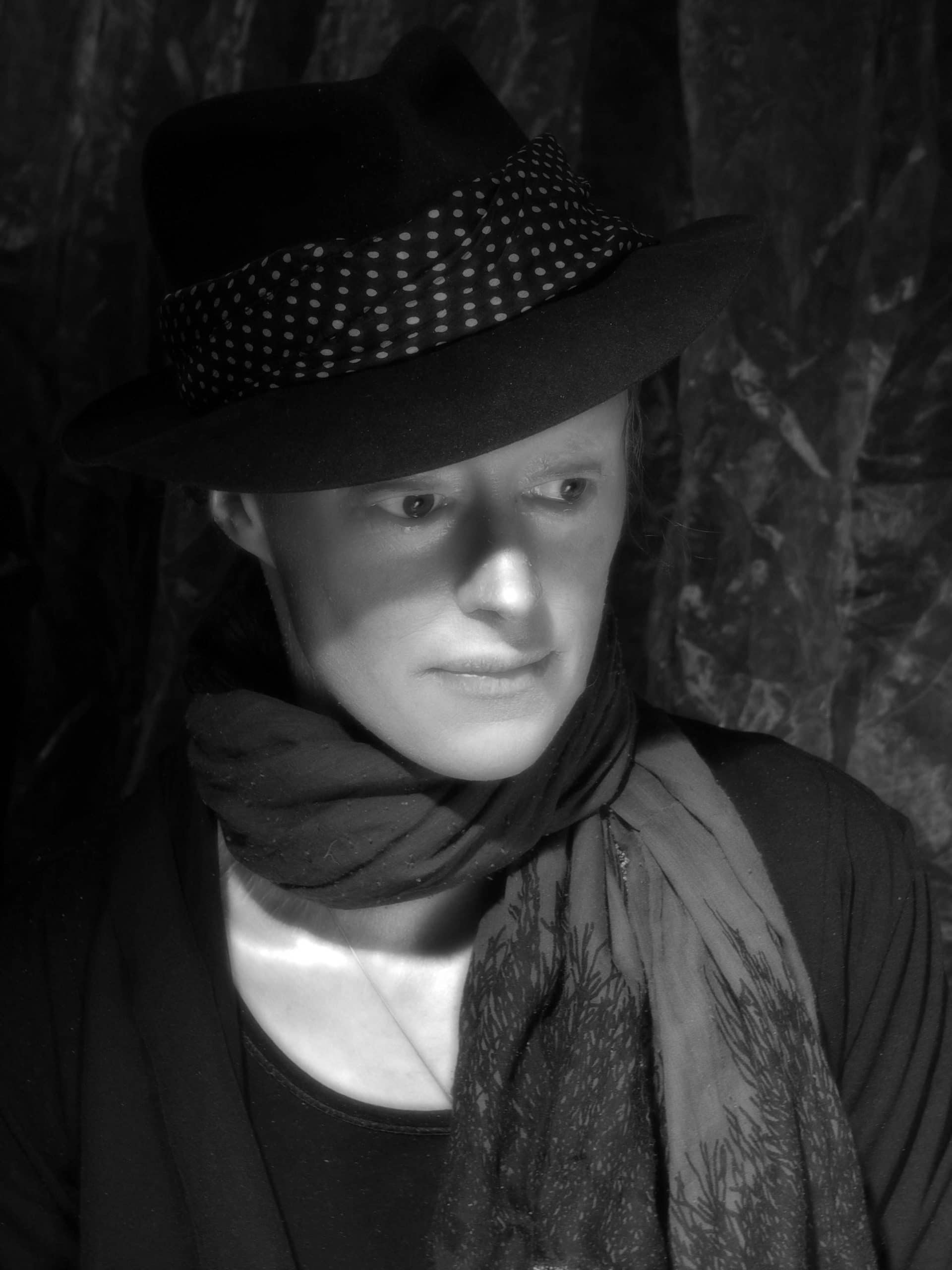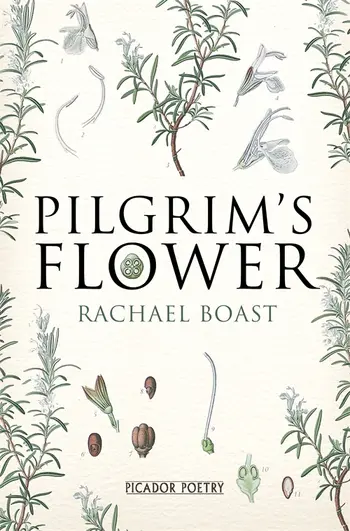
Rachael Boast was born in Suffolk in 1975. Her first collection of poetry, Sidereal, won the Forward Prize for Best First Collection and the Seamus Heaney Prize in 2012. She is editor of The Echoing Gallery: Bristol Poets and Art in the City and deputy director of the Bristol Poetry Institute. She currently divides her time between Scotland and the West Country.

Judges’ Citation
Rachael Boast’s Pilgrim’s Flower is remarkable for its intense lyricism, its metaphysical warmth and precision.
Rachael Boast’s Pilgrim’s Flower is remarkable for its intense lyricism, its metaphysical warmth and precision. Although Boast’s poems do not depict life in any autobiographical sense, they do show us, perhaps more interestingly, a mind in action, a mind that connects with an electric charge to place, people, language. In ‘Double Life’, a poem addressed to Thomas Chatterton, Boast speaks of ‘the mutable self fluttering by candlelight’, a phrase which might serve as the key to her project: it is the lyric moment which offers a way of understanding the mutability of both the observer and the observed; it is the lyric moment which permits glimpses of the fluttering connection between. Other writers are evoked, too: Akhmatova and Coleridge are among those in conversation with the poet. The effect is to bring their writing, their thinking into the present moment for the reader, a kind of layered time-travel only the best lyric poems allow. The layers of history also emerge in those poems, which look inside and outside the boundaries of place. The spiritual and the physical co-exist in the stones of the cathedral in ‘Caritas’ just as they do in the sonnet in which they are held: ‘And what comes across, half-said/into all that space, is that it’s enough/to love the air we move through.’ Rachael Boast’s formal dexterity, her metaphysical reach, the clarity of her language and music make Pilgrim’s Flower a collection of true lyric poetry, at its finest.
Selected poems
by Rachael Boast
In the emollient night of roses and paraffin,
of burning hands and of all that burns
of broken sleep piecing together what for
so long had remained lost of what was lost
not in the dark but in the fire of the dark
in the night and in the oil of the night
of everything you were led to believe in,
everything stays secret until – one morning –
you put your hands through the touch
of the unfinished light and took it back.
Copyright © Rachael Boast 2013
Aubade
(St Andrews Cathedral)
These stones speak a level language
murmured word by word
a speech pocked and porous with loss
and the slow hungers of weathering.
And there, in the broken choir, children
are all raised voice, loving the play of outline
and absence where the dissembled god
has shared his shape and homed us.
At the end of the nave, the east front stands
both altered and unchanged,
its arch like a glottal stop.
And what comes across, half-said
into all that space, is that it’s enough
to love the air we move through.
Copyright © Rachael Boast 2013
Caritas
I’ve heard the phrase between you
and me too many times to believe
it to be true, but between me and you
there was Cocteau, wagging his testimonial
finger, as usual, while flat out on the floor
with my arms in receipt of the flower
of thought, palms upwards, I envisaged
the inside eyes of his hands remaking words
for a song that is a drawing that is a film —
that is, a poem; and in the middle of all this
the books on the shelves float down while
falling upwards, slipping out of their jackets
as the naked petals of their pages turn
into mirrors, which is to say, they blossom.
Copyright © 2013 by Rachel Boast
Cocteau Twins
Nothing was ever straightforward with you
and so, instead of returning to where
I left off, I re-entered the poem
from afar – it hardly mattered where –
and eventually reached the same clearing
marked, I’d noticed, by the hands of time
held up in prayer, where I’d seen you before –
or thought I had – at the midnight hour
you rhyme yourself with. Page after page
the light would change, to dark and back again,
reminding me of someone who, when put
on the spot, knows the dance of gain and loss
by the secret fidelity of moving
from one foot to the other, to the other.
Copyright © Rachael Boast 2013